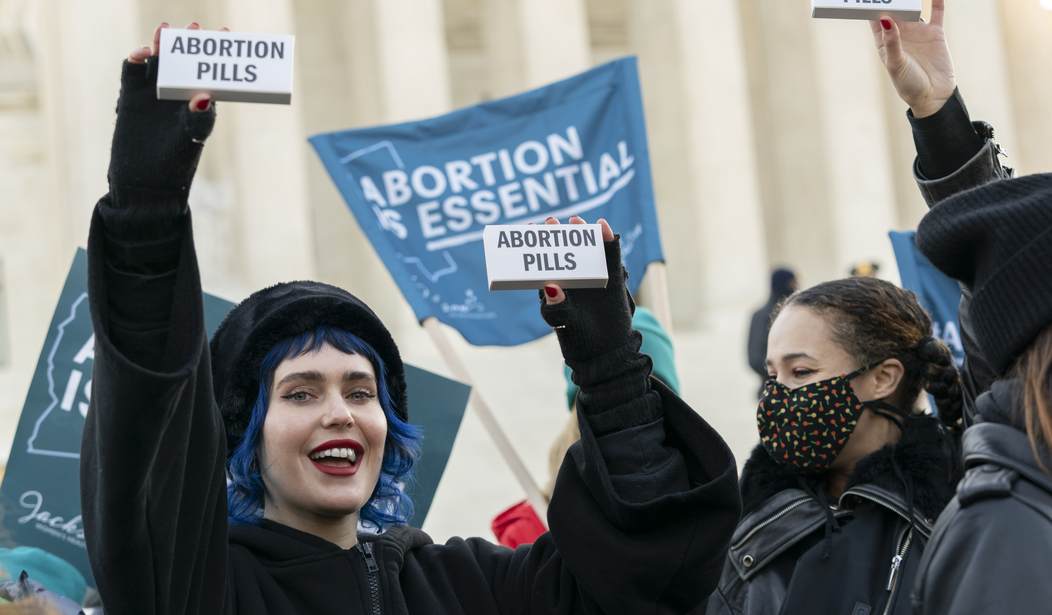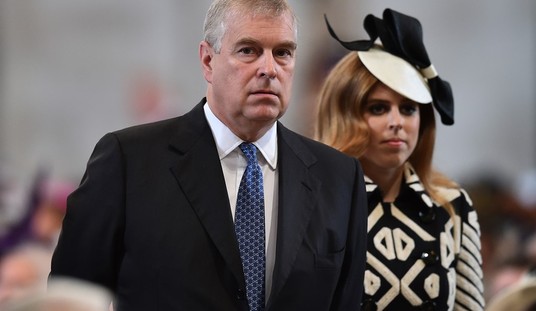Democrats have warned for weeks — years, really — that any Supreme Court decision that overturns Roe v Wade would trigger an apocalyptic political shift to the Left. Now that the moment might be upon us in Dobbs, should Republicans fear the Roe reaper? Not exactly, reports Politico, as a new Morning Consult poll shows only a third of voters will cast ballots with abortion as their key issue:
Far more voters say they want the Supreme Court to leave Roe v. Wade in place than not, but the issue isn’t a key motivator heading into the midterm elections, according to a new POLITICO/Morning Consult poll. …
Yet 42 percent of respondents to the poll said they would vote for a candidate who doesn’t align with their views on abortion, compared to 32 percent who said that the candidate’s stance will determine their vote. Another 26 percent were unsure or had no opinion on the matter.
The most surprising statistic from the poll is how few voters are even engaged enough on the topic to follow it. Despite extensive and intense media coverage of the Dobbs case (and the novel law in Texas described as an abortion “ban”), including the live-streaming of Supreme Court arguments and all-day analysis of them, barely half of the respondents heard much about it:
The poll found 44 percent of those surveyed said they had heard “not much” or “nothing at all” about the case, while nearly two-thirds either said they didn’t know how likely the court was to overturn Roe or said the court isn’t likely to overturn the precedent.
That doesn’t look like an electorate waiting to erupt in the wake of a Roe reversal. In fact, it looks more like an electorate driven by other priorities. It might make a difference if the composition of the 32 percent straddle the middle, but for now we don’t have access to Morning Consult’s polling data. It seems more likely, however, that this is the same percentage of professed single-issue voters on abortion that we see on a routine basis. If that’s the case, then the Supreme Court probably won’t have much impact on the midterms at all, especially since congressional elections don’t have a lot of impact on the Supreme Court. That’s more of a presidential-cycle issue.
Politico’s David Siders finds that Democratic strategists are already conceding that point, albeit sotto voce:
The quick-setting gospel in Washington, D.C. last week was that any rollback of Roe v. Wade next year would trigger a Democratic revolt, placing abortion rights at the center of the midterm elections and sparking unprecedented turnout on the left.
But in the days since the Supreme Court’s oral arguments on a case from Mississippi, a more sober and nuanced assessment has begun to settle in. Interviews with more than a dozen Democratic strategists, pollsters and officials reveal skepticism that the court’s decision will dramatically alter the midterm landscape unless — and perhaps not even then — Roe is completely overturned. Privately, several Democratic strategists have suggested the usefulness of any decision on abortion next year will be limited, and some may advise their clients not to focus on abortion rights at all.
Some of that thinking is colored by Virginia’s gubernatorial race earlier this year. After the Supreme Court allowed a law banning abortion after six weeks of pregnancy to take effect in Texas, the party was so sure abortion would resonate with voters that Democrat Terry McAuliffe made it a centerpiece of his campaign, saying “it will be a huge motivator for individuals to come out and vote.”
By the time ballots were cast, just 8 percent of voters listed abortion as the most important issue facing Virginia, according to exit polls. Even worse for Democrats, of the people who cared most about the issue, a majority voted for the Republican, Glenn Youngkin.
The passion has been on the side of the pro-life movement for the last several years, so this shouldn’t have surprised Democrats that insisted on making abortion an issue. That may answer a question about the nature of the 32 percent in the MC poll, too. But if Roe does get overturned, then that passion may shift as abortion becomes an actual issue in state legislatures, a point to watch carefully in blue- and purple-state elections in a post-Roe world.
And maybe not just in state legislative elections, Paul Mirengoff writes at Power Line. We’re heading into unchartered territory if the Supreme Court reverses Roe, he warns, and that will require new maps:
On balance, though, I read Balz as saying that such a decision would likely have a significant impact on Senate races, too. He quotes Celinda Lake, who believes that a decision to overturn Roe would motivate younger Democratic women, many of whom are infrequent voters. It would also fire up baby boom women who, unlike younger women, remember when abortion was not legal and until now have doubted that Roe would be overturned. …
But one reason why abortion has been a backburner issue for liberals may be that, as Celinda Lake says, few truly believed that Roe would be overturned. All bets are off if that actually happens.
If so, I’d expect the backlash in 2024 rather than 2022, but I’d also expect the backlash to be limited. Voters might indulge social issues in a time of economic growth and real prosperity, but we’re far from that now, which makes the economy much more important. Even beyond that, it’s difficult to see how the abortion lobby can do any more to influence voters than they already do in every election cycle. If Democrats are counting on the Supreme Court to save them from midterm accountability for Joe Biden’s incompetence and dishonesty, they are doomed to disappointment regardless of the decision in Dobbs.








Join the conversation as a VIP Member